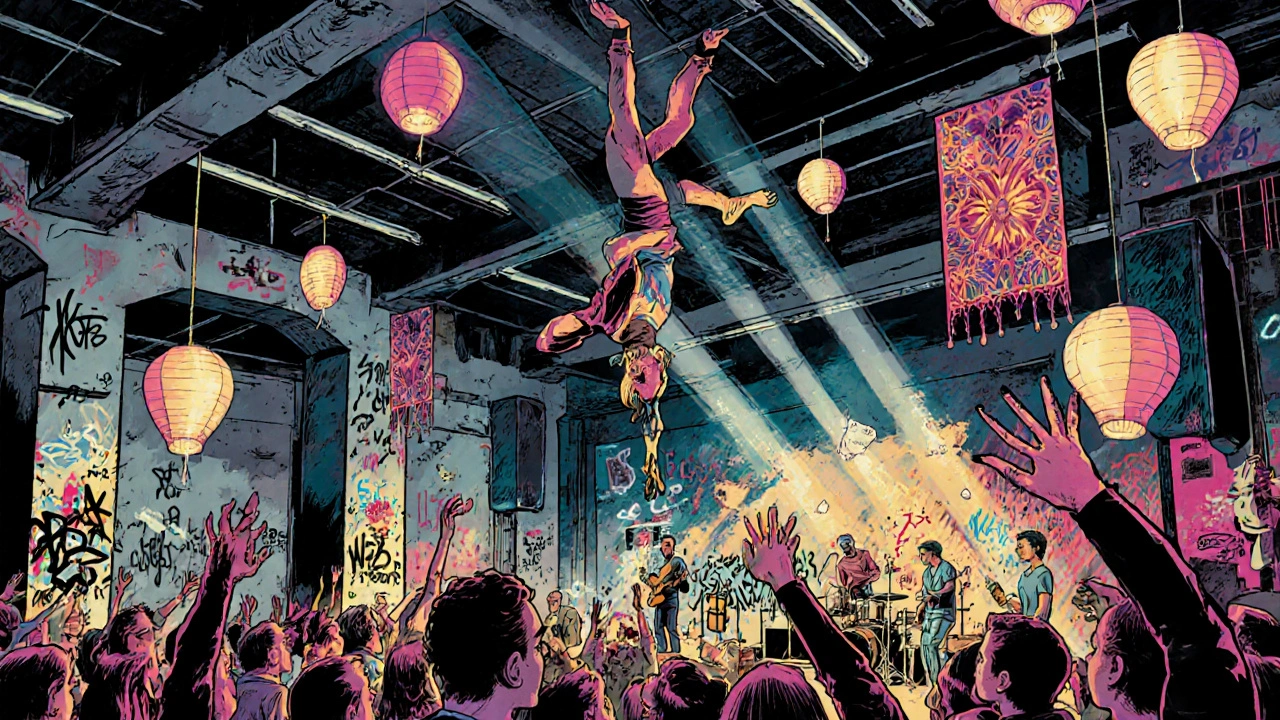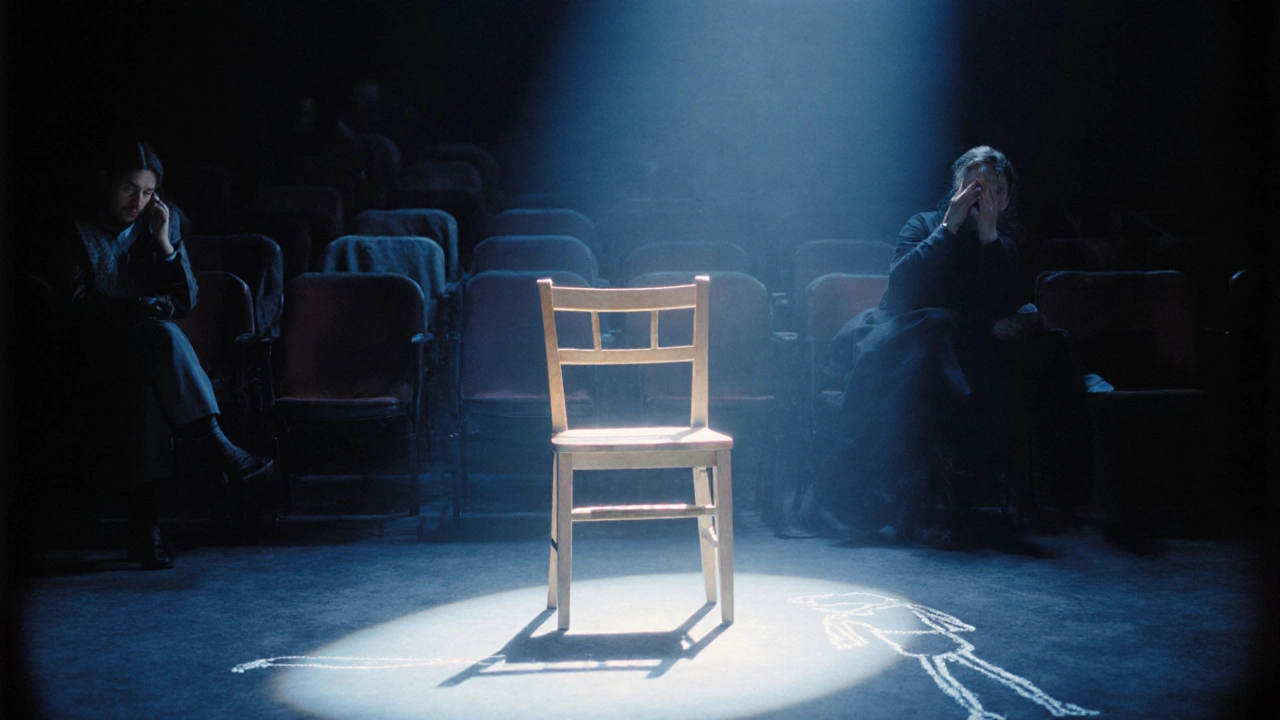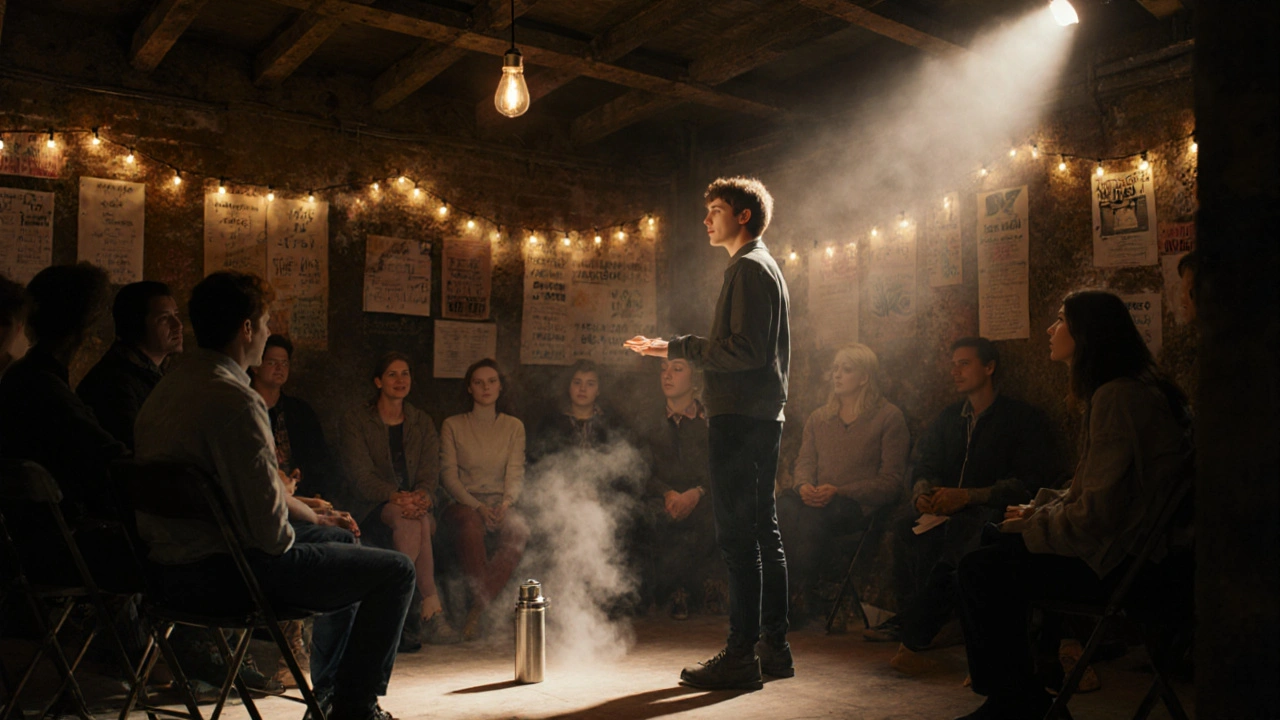London doesn’t just have West End shows-it has a wild, messy, brilliant underbelly of live theatre that happens in pubs, basements, and converted warehouses. If you’re looking for something raw, surprising, or totally unexpected, the city’s fringe festivals are where the real magic happens. Forget ticket prices over £80. Here, you can see a play written by a 22-year-old student, watch a one-person show about grief performed in a laundrette, or laugh until you cry at a comedy act that started as a dare. The Camden Fringe is the biggest of these, but it’s not the only one. This is your no-fluff guide to the best theatre festivals in London right now.
Camden Fringe: The Heartbeat of London’s Indie Scene
Started in 2009, the Camden Fringe has grown into the largest independent theatre festival in the UK. In 2025, it ran for 32 days across 40+ venues-from the tiny basement of the Camden Head pub to the converted chapel of St. Pancras Church. Over 300 shows were listed: stand-up, physical theatre, puppetry, immersive experiences, and plays that broke the fourth wall so hard you could hear the splinters.
What makes it different? You don’t need connections. You don’t need a producer. You just need a story and a space. Last year, a show called My Mother’s Ashes sold out every performance after a TikTok clip of the lead actor crying mid-monologue went viral. It wasn’t polished. It wasn’t perfect. But it was real-and that’s why people showed up.
Most tickets cost £10-£15. Many venues offer ‘pay what you can’ slots. You can walk in 15 minutes before showtime and still get a seat. The festival doesn’t advertise much. It thrives on word-of-mouth, Instagram reels, and locals dragging their friends to weird little shows they didn’t know existed.
Edinburgh Fringe? No, Try the London Fringe
People always talk about Edinburgh. It’s big. It’s loud. It’s expensive. But if you want to see new work before it gets overhyped, London’s fringe scene is where it starts. Most Edinburgh acts test their material in London first. The Camden Fringe is basically Edinburgh’s testing ground.
In 2024, five shows that premiered at Camden Fringe went on to sell out at Edinburgh. One of them, How to Be a Good Daughter, later got picked up by the National Theatre. That’s not luck. That’s how the pipeline works.
London’s festivals are less about spectacle and more about substance. You’ll see fewer glitter costumes and more handwritten scripts taped to the wall. Fewer celebrity cameos. More first-time performers with trembling voices and raw honesty.
Other Must-See London Theatre Festivals
Camden Fringe is the giant, but it’s not alone. Here are four others you should know about:
- Southwark Playhouse’s New Writing Festival - Focused on emerging playwrights from across the UK. In 2025, 70% of the writers were under 30. The venue’s tiny 80-seat space feels like you’re in the room with the characters.
- Islington Fringe - Smaller than Camden, but tighter. More comedy, more spoken word. Known for its ‘10-minute play slam’ nights where writers get 10 minutes to perform their work-and the audience votes on the best. Winners get a free slot at the next festival.
- Battersea Arts Centre’s Big Top Festival - A mix of circus, dance, and experimental theatre. Think acrobats performing on swings above a live band. No scripts. Just movement, music, and emotion. Perfect if you’re tired of talking.
- London International Mime Festival - Not strictly ‘fringe,’ but it’s where visual theatre thrives. In 2025, a Japanese performer used only shadows and a single chair to tell a 40-minute story about losing a child. No words. No music. Just silence and light. People left in tears.

Why These Festivals Matter
These aren’t just ‘fun events.’ They’re lifelines for artists who can’t afford the West End’s overhead. Rent in London is brutal. A 200-seat theatre costs £15,000 a week to run. Fringe festivals keep the art alive by letting creators use free or low-cost spaces: church halls, bookshops, even a converted laundromat in Peckham.
Actors here aren’t waiting for auditions. They’re writing their own roles. Directors aren’t waiting for grants. They’re crowdfunding £500 on GoFundMe to buy lights. Writers aren’t sending scripts to agents. They’re handing them out after the show.
And audiences? They’re not just watching. They’re part of it. You’ll be asked to move chairs. To whisper a line. To hold a prop. To cry with someone you’ve never met. That’s the difference.
How to Get Involved (Even If You’re Not an Artist)
You don’t need to be an actor to be part of this. Here’s how:
- Buy a ticket - Even if it’s just one show. Every £10 helps keep a space open.
- Volunteer - Most festivals need help with ticketing, ushering, or social media. No experience needed. Just show up.
- Share a post - Tag a friend who loves theatre. A single Instagram story can get a show 50 extra people.
- Write a review - Even three sentences on Google or Facebook helps. Artists read these. They matter more than you think.
- Bring someone new - Take a friend who’s never been to a fringe show. Their first time might be the spark that changes their life.

What to Expect When You Go
Don’t show up expecting velvet seats and champagne. You’ll find:
- Chairs set up in a circle because there’s no stage
- A projector flickering because the bulb’s old
- Someone handing out tea after the show because the cast made it themselves
- A 19-year-old actor who just quit their job to write a play about being queer in a small town
- A silence after the final line that lasts longer than the show itself
It’s messy. It’s loud. Sometimes it’s bad. But when it’s good? It’s the kind of theatre that sticks with you for years.
When’s the Next One?
Camden Fringe runs every July. Islington Fringe is in September. Southwark’s New Writing Festival is in October. Battersea’s Big Top is in March. London International Mime Festival is in January.
Bookmark camdenfringe.com and follow @camdenfringe on Instagram. Sign up for their newsletter. You’ll get a weekly email with one new show you didn’t know existed. That’s it. No ads. No spam. Just good stuff.
London’s theatre scene isn’t just about the big names. It’s about the people who show up anyway. The ones who believe a story told in a basement can change someone’s mind. That’s the real magic. And it’s still happening.
Are London fringe theatre tickets expensive?
No. Most fringe shows cost between £10 and £15. Many venues offer ‘pay what you can’ options, and some even let you watch for free if you help out backstage. You’ll pay more for a coffee in Camden than for a full play.
Can I perform at a London fringe festival?
Yes. Most fringe festivals are open submissions. You don’t need an agent or a producer. Just submit your show idea, pick a venue (many are free to book), and go. Camden Fringe accepts over 400 entries each year-half of them from first-time performers.
Is fringe theatre only for young people?
Not at all. While many performers are under 30, the audience is diverse. You’ll see retirees, students, parents, artists, and tourists. People come because the stories are real, not because they’re trendy. Some of the best reviews come from people in their 60s who say, ‘I haven’t felt this moved by theatre in decades.’
How do I find shows that aren’t on the main website?
Follow local theatre spaces on Instagram. Many pop-up shows are announced only on social media. Check out @londonfringehub, @islingtonfringe, and @battersea_arts_centre. Also, walk around Camden or Peckham on a Friday night-posters are everywhere. Some of the best shows have no website at all.
What if I don’t like the show?
That’s okay. Fringe theatre isn’t about perfection. Sometimes the value is in the attempt. You’ll leave with a story to tell-even if it’s ‘I saw a guy do a 20-minute monologue as a toaster.’ That’s part of the experience. And if you really hate it? Talk to the cast afterward. They’ll appreciate your honesty.
If you’re looking for something that feels alive, skip the big names. Head to a basement in Camden. Sit on a folding chair. Listen. You might just hear the next great British play before anyone else does.
